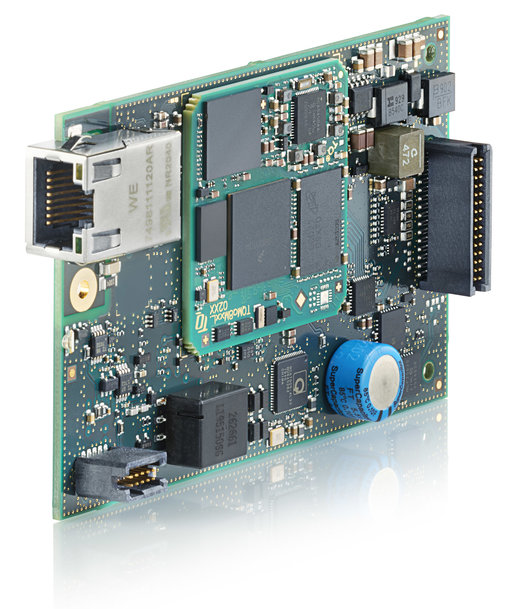electronics-journal.com
29
'21
Written on Modified on
New Charging Controller for DC Wallboxes From Vector
As an interface between the electric vehicle and the power electronics, vSECC.single controls the charging communication for the Combined Charging System (CCS) in accordance to ISO 15118-2 and DIN SPEC 70121.

It also supports CHAdeMO specified by the Japanese Charging Consortium and, in the future, ChaoJi. The charge control unit from Vector communicates with the charging station management system (back end) via OCPP 2.0.1 and with the power electronics via CAN or alternatively via Ethernet. The powerful processor is already prepared for further use cases such as integration in energy management systems, smart home or Plug and Charge.
The initially available pocket-sized plug-on board is particularly suitable for intelligent DC or AC wallboxes in private and commercial environments thanks to its compact dimensions. The vSECC.single Board can easily be integrated into existing electronics and handles all communication within the charging station. It is connected to a base board via two connectors.
Inverter and photovoltaic system manufacturers thus conveniently add electric charging to their portfolio as the controller contains all the intelligence for charging communication and controls the power electronics via CAN. vSECC.single is already prepared for bidirectional charging. Here, the electric vehicle serves as a stationary storage device by storing or returning energy as needed, provided that the user of the electric vehicle does mostly not rely on the full battery capacity for his trips.
vSECC.single in a DIN rail housing is perfect when only one charge point per charging station is possible due to the size of the vehicle and limited cable lengths. Such a scenario arises when charging large commercial vehicles via plug or pantograph charging stations. The power electronics are located further away and conveniently controlled via Ethernet with the vSECC.single, which makes distances of up to 100 meters possible. As a result, small and slim charging stations can be set up. This reduces space between the vehicles and protects the expensive power electronics from accidents.
Vector already offers the universal controller vSECC for managing multiple charge points, as frequently required for public charging stations. vSECC.single and its larger counterpart vSECC are functionally interchangeable thanks to compatible interfaces and software. After successfully integrating one controller, developers can also use the other charge control unit. This saves customers additional programming effort and allows them to easily expand their existing product portfolio.
www.vector.com

